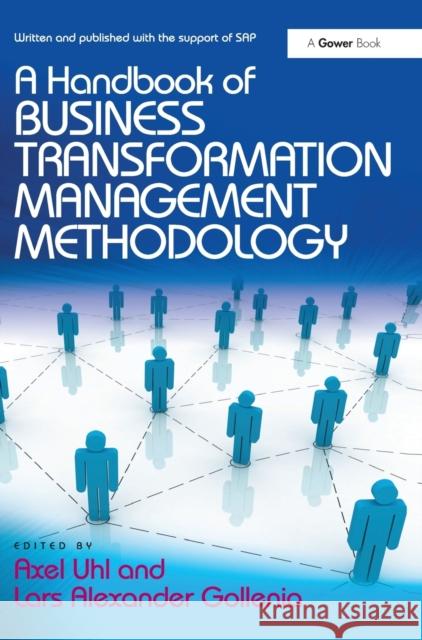A Handbook of Business Transformation Management Methodology » książka
A Handbook of Business Transformation Management Methodology
ISBN-13: 9781409449805 / Angielski / Twarda / 2012 / 344 str.
This book provides an integrative Business Transformation Management Methodology, the BTMA, with an emphasis on the balance between the rational aspects of transformation and the often underestimated emotional readiness of employees to absorb and accept transformation initiatives. The BTMA is a response to the limitations of single methods and management approaches that have always been adopted separately from each other. Comprising four phases - Envision, Engage, Transform, and Optimize - the methodology integrates discipline-specific technical and methodological expertise from transformation-relevant subject areas. The BTMA provides guidance and support for transformation projects by bringing together the disciplines of Meta, Strategy, Value, Risk, Transformational IT, Program and Project, Organizational Change, Business Process, and Competence and Training Management. While Strategy, Value, and Risk Management set the course for a business transformation, the other disciplines enable the transformation process. The Meta Management discipline is a novel approach that aims at orchestrating the application of all BTMA disciplines. It incorporates topics such as business transformation culture, values, and communication, as well as formal and informal structures and roles needed for a successful transformation approach. Additionally, a wide range of theory is discussed to help understand the phenomenon of transformation with new insights from case studies that helped to develop the methodology that is offered here. The BTM2 was developed by the Business Transformation Academy (BTA). The BTA is an innovative think tank that manages an interdisciplinary Thought Leadership Network operating under the auspices of the Business Transformation Services of SAP. For the purpose of creating this holistic methodology the BTA brought together 33 international thought leaders from various management disciplines. The result is a '360-degree' view on what business transformation means and how to manage it successfully. Therefore, this handbook is intended for C-level executives, reflective managers and consultants, and those with an academic interest in change and transformation management."











